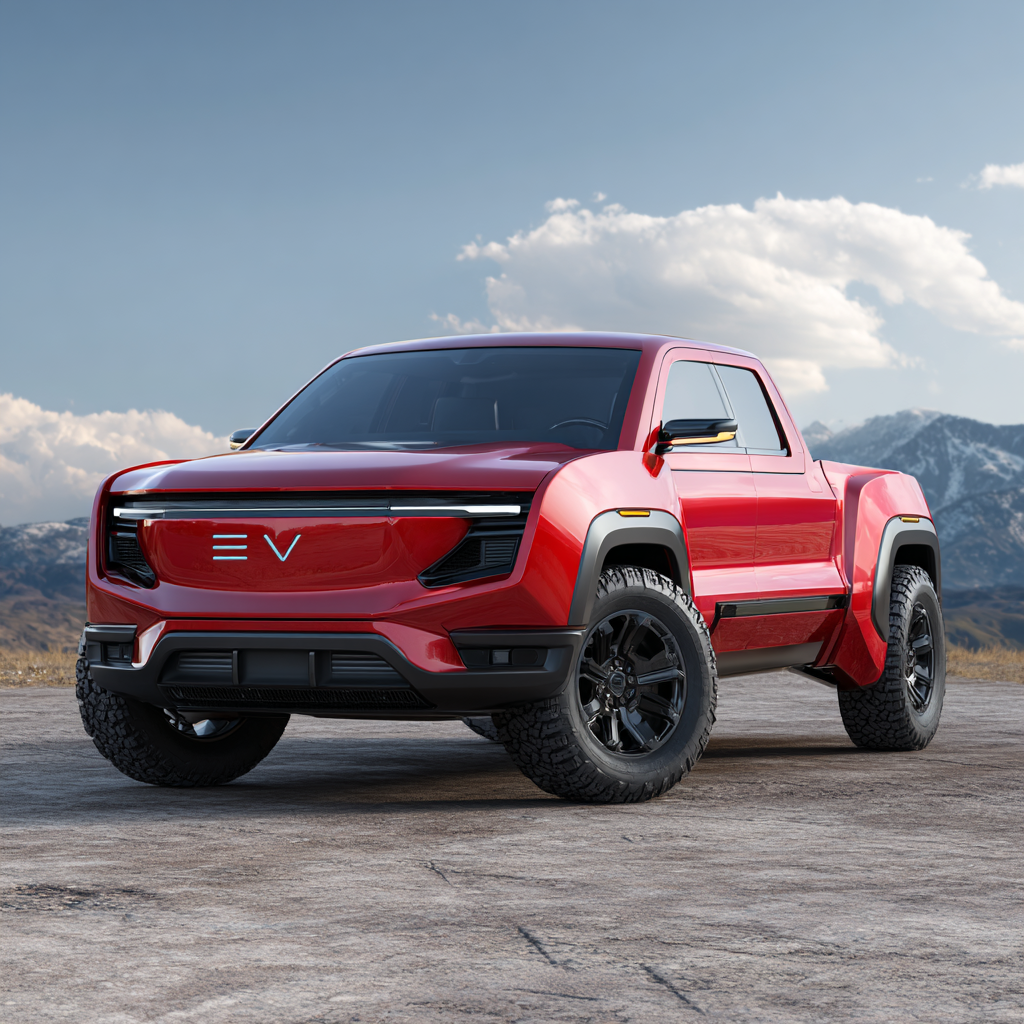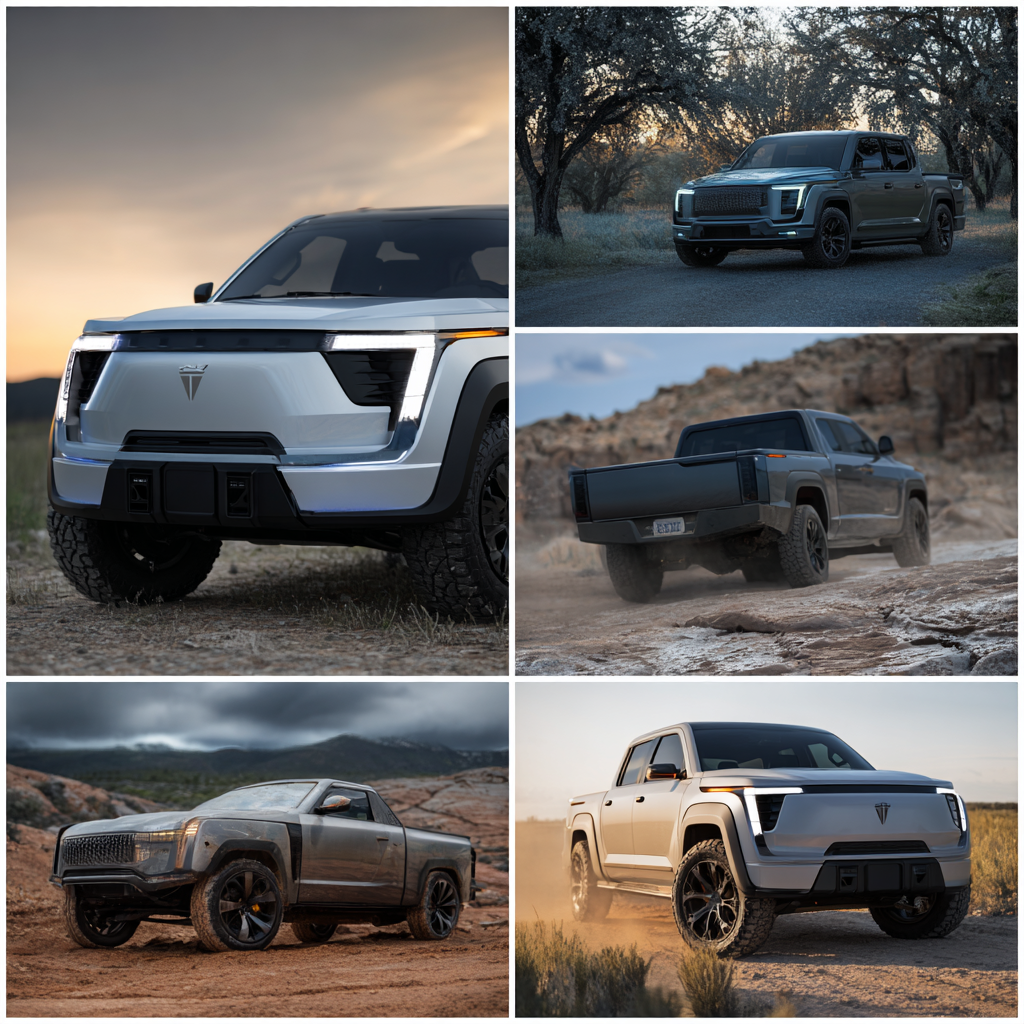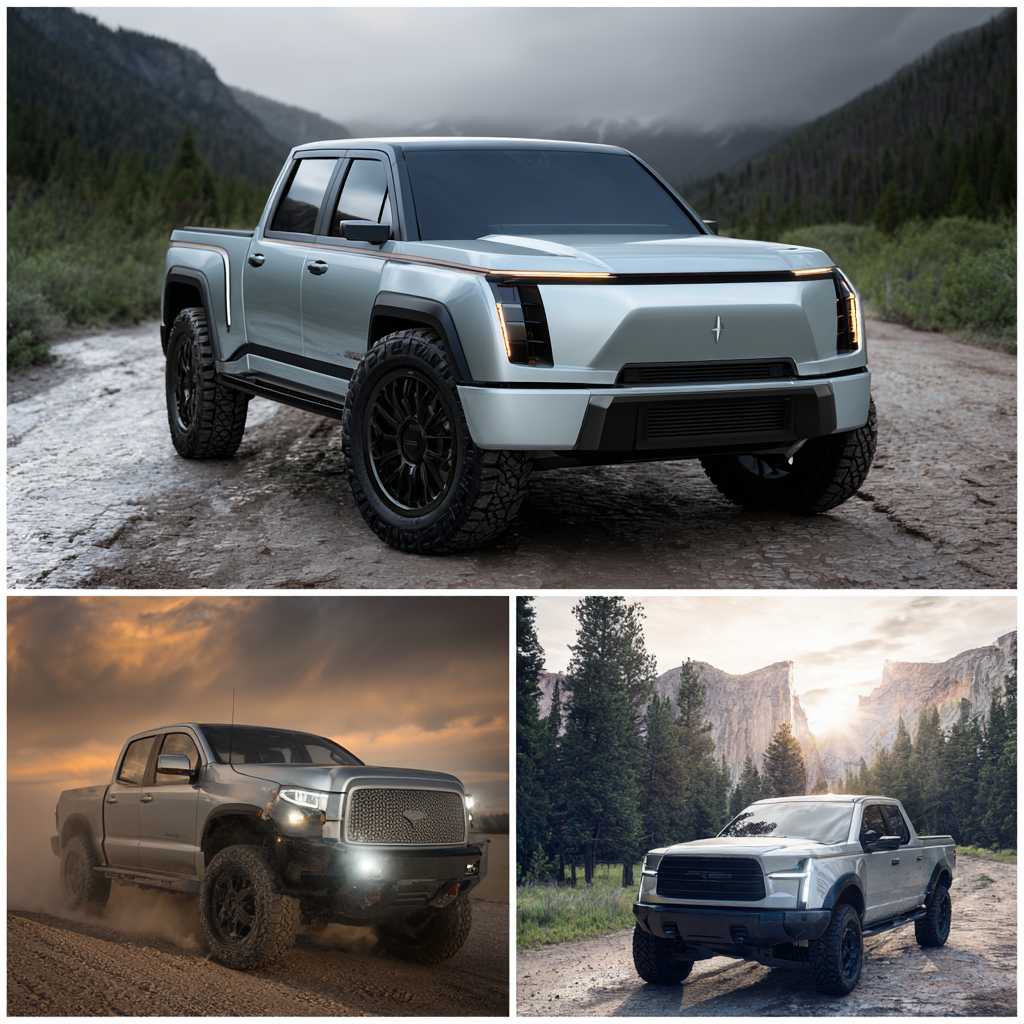
2025 Market Insights: The Future of the Best EV Pickup Truck Industry
As we look toward 2025, the landscape of the EV Pickup Truck industry is poised for transformative growth, driven by increasing consumer demand and technological advancements. According to a recent report by BloombergNEF, the global EV market is expected to reach 10 million units in the next few years, with electric trucks accounting for a significant portion of this growth. Notably, the pickup truck segment has emerged as a crucial frontier, with projections indicating that EV pickup trucks could capture a market share of up to 25% by 2025. With major automotive manufacturers like Ford and Tesla aggressively investing in electric vehicle technology, the focus on detailed technical specifications—including battery capacity, towing capacity, and range—is more critical than ever. This blog will delve into the pivotal factors shaping the future of the best EV pickup trucks, providing insights backed by robust industry data and analysis.

Innovative Technologies Shaping the Future of EV Pickup Trucks in 2025
As we look ahead to 2025, the electric vehicle (EV) pickup truck industry is poised for transformative changes driven by innovative technologies. One of the most significant advancements is the integration of advanced battery systems, which promise longer ranges and faster charging times. Companies are investing heavily in solid-state batteries, which are not only lighter but also more efficient than traditional lithium-ion counterparts. This shift will enable EV pickups to compete more effectively with their gasoline-powered rivals, making them increasingly appealing to consumers who require both utility and performance.

Moreover, the advent of connected vehicle technologies is set to revolutionize the driving experience. With the rise of 5G connectivity, EV pickups will likely feature enhanced infotainment systems that offer real-time navigation, remote diagnostics, and over-the-air updates. This interconnectedness will not only improve vehicle functionality but also foster a new level of driver engagement. Additionally, innovations in autonomous driving technology may lead to features that enhance safety and convenience, allowing drivers to focus on other tasks during commutes or even when parked, thereby transforming our perception of what a pickup truck can do.
The Role of Chinese Manufacturing in the Global EV Pickup Truck Market
The global EV pickup truck market is undergoing a significant transformation, with Chinese manufacturers playing a pivotal role in its evolution. According to a recent report by BloombergNEF, electric pickups are projected to capture up to 25% of the global pickup truck market share by 2025. This shift is not only driven by rising environmental concerns but also the advancing technology and competitive pricing that Chinese automakers offer.
China's robust manufacturing capabilities enable them to produce electric vehicles at a scale and cost that is challenging for Western companies to match. Research from the International Energy Agency (IEA) indicates that Chinese EV production is expected to exceed 5 million units annually by 2025, leading the global market. Brands like BYD and NIO are at the forefront, producing electric pickups that combine innovation with affordability, positioning themselves as formidable competitors to traditional American brands. This dynamic is not only reshaping market strategies but is also encouraging collaboration between Western and Eastern companies, fostering a more interconnected automotive industry.
Sustainability Trends Impacting the EV Pickup Industry by 2025
As the electric vehicle (EV) pickup truck industry gears up for 2025, sustainability is emerging as the key driver of innovation and consumer preference. According to a recent report by McKinsey, the global demand for electric pickups is expected to increase by 250% in the next three years, fueled by a growing commitment to environmental responsibility among consumers. This shift aligns with a broader trend where 70% of potential buyers prioritize eco-friendly features when selecting a vehicle, emphasizing the need for manufacturers to incorporate sustainable materials and energy-efficient technologies in their designs.
Moreover, regulations aimed at reducing carbon emissions are shaping the industry's landscape. The International Energy Agency (IEA) predicts that by 2025, nearly 25% of all light-duty vehicles sold in North America will be electric, with a notable focus on pickups, which traditionally account for a significant portion of vehicle sales. As automakers ramp up their electrification strategies, the integration of renewable energy in the manufacturing process is not just beneficial for compliance—it's becoming a competitive advantage. Companies that lead in sustainability initiatives, including the use of recycled materials and efficient production methods, are likely to capture a significant market share, further propelling the EV pickup sector into a sustainable future.
2025 Market Insights: The Future of the Best EV Pickup Truck Industry
| Parameter | 2023 Data | 2025 Projection | Growth Rate (%) |
|---|---|---|---|
| Global EV Pickup Trucks Sales (Units) | 150,000 | 500,000 | 233.33% |
| Market Share of EV Pickup Trucks (%) | 5% | 12% | 140% |
| Average EV Pickup Truck Price ($) | 45,000 | 48,500 | 5.56% |
| Battery Technology Adoption (%) | 15% | 30% | 100% |
| Charging Infrastructure (Number of Stations) | 1,200 | 5,000 | 316.67% |
Consumer Preferences and Expectations for Electric Pickup Trucks in the Future
As the electric vehicle (EV) market evolves, consumer preferences for electric pickup trucks are becoming increasingly defined. Drivers are seeking not only performance and range but also sustainability and technological innovation. The traditional image of a pickup truck, synonymous with ruggedness and power, is now melding with the attributes of electric efficiency and environmental consciousness. Consumers expect electric pickups to deliver the torque and towing capacity that their gas-powered counterparts offer, but with the added benefit of fewer carbon emissions, promoting a greener lifestyle.
In addition to performance, features such as advanced connectivity, autonomous driving capabilities, and smart safety systems are in high demand. Future electric pickups are likely to integrate cutting-edge technologies that enhance the driving experience while providing users with smart solutions for practical everyday challenges. Furthermore, aesthetics and customizability will play a vital role; prospective buyers want their electric trucks to reflect personal style and functionality, ensuring that they do not compromise on design. This shift in consumer expectations will undoubtedly shape the EV pickup truck industry, driving manufacturers to innovate and adapt to meet these evolving needs.

Challenges and Opportunities for EV Pickup Truck Manufacturers in 2025
As the electric vehicle (EV) pickup truck industry gears up for 2025, manufacturers face a unique landscape filled with both significant challenges and expansive opportunities. With a growing environmental awareness and a shift in consumer preferences towards sustainable solutions, companies must innovate to stay competitive. However, they encounter hurdles such as supply chain disruptions, high production costs, and the need for extensive charging infrastructure.
Tips for manufacturers include focusing on strategic partnerships to enhance battery technology and reduce costs. Collaboration with tech companies can yield advancements in software and integrated systems that increase the efficiency and appeal of EV pickups. Moreover, establishing robust marketing strategies that highlight the durability, performance, and environmental benefits of EV trucks can attract a broader audience.
Another critical aspect is engaging with regulatory frameworks that support the EV transition. Manufacturers should proactively align their goals with government incentives aimed at reducing carbon emissions. By staying ahead of regulatory changes, they can navigate potential compliance challenges while seizing incentives that make EV pickups more accessible to consumers.